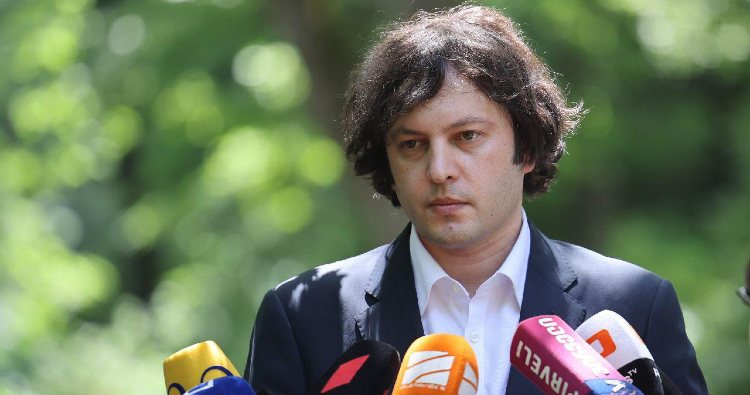Georgian PM “ready to provide evidence” of “direct threats” of “sharing fate” of Slovak counterpart

In his comments to the media the PM claimed this investigation “may be relevant for specific countries” but not for domestic authorities, adding a Georgian investigation was “not relevant for the reality of the country”. Photo: Government Administration
Georgian Prime Minister Irakli Kobakhidze on Monday said he was “ready to provide evidence” to a foreign investigation on “direct threats” made towards him about “sharing the fate” of Robert Fico, the Slovak Prime Minister who was shot last month.
Kobakhidze’s comments followed his phone call last month with Olivér Várhelyi, the European Union Commissioner for Neighbourhood and Enlargement, who the Georgian PM said had “listed a number of measures” Western officials could take if the Georgian President’s veto on the controversial domestic law on transparency of foreign influence was overcome by the ruling Georgian Dream party.
In his comments to the media the PM claimed this investigation “may be relevant for specific countries” but not for domestic authorities, adding a Georgian investigation was “not relevant for the reality of the country”.
I do not think that [...] the threat was calculated with an outcome in mind, therefore, I do not see the interest of starting an investigation in Georgia. It is a fact that a confession followed all this. It was a direct confession - we were told that the result of certain processes could be the liquidation of the highest political official”, he said.
It was a feeble attempt at intimidation. From this it can be seen that those people and those forces who are blackmailing Georgia sometimes with the [EU] candidate status, sometimes by opening or not opening accession talks with the country, are in a rather weak position”, the official added.
Várhelyi last month commented on Kobakhidze’s original remark on May 23 about the conversation, expressing “very sincere regret” that a “certain part” of the call had been “taken out of context”.
The EU official said he had “felt the need” to call the attention of the Georgian PM to the importance of “not inflaming the already fragile situation further” by adopting the law, which he said could lead to “further polarisation and to possible uncontrolled situations on the streets of Tbilisi”.
He also added “in this regard, the latest tragic event in Slovakia was made as an example and as a reference to where such a high level of polarisation can lead in a society even in Europe”.
 Tweet
Tweet  Share
Share